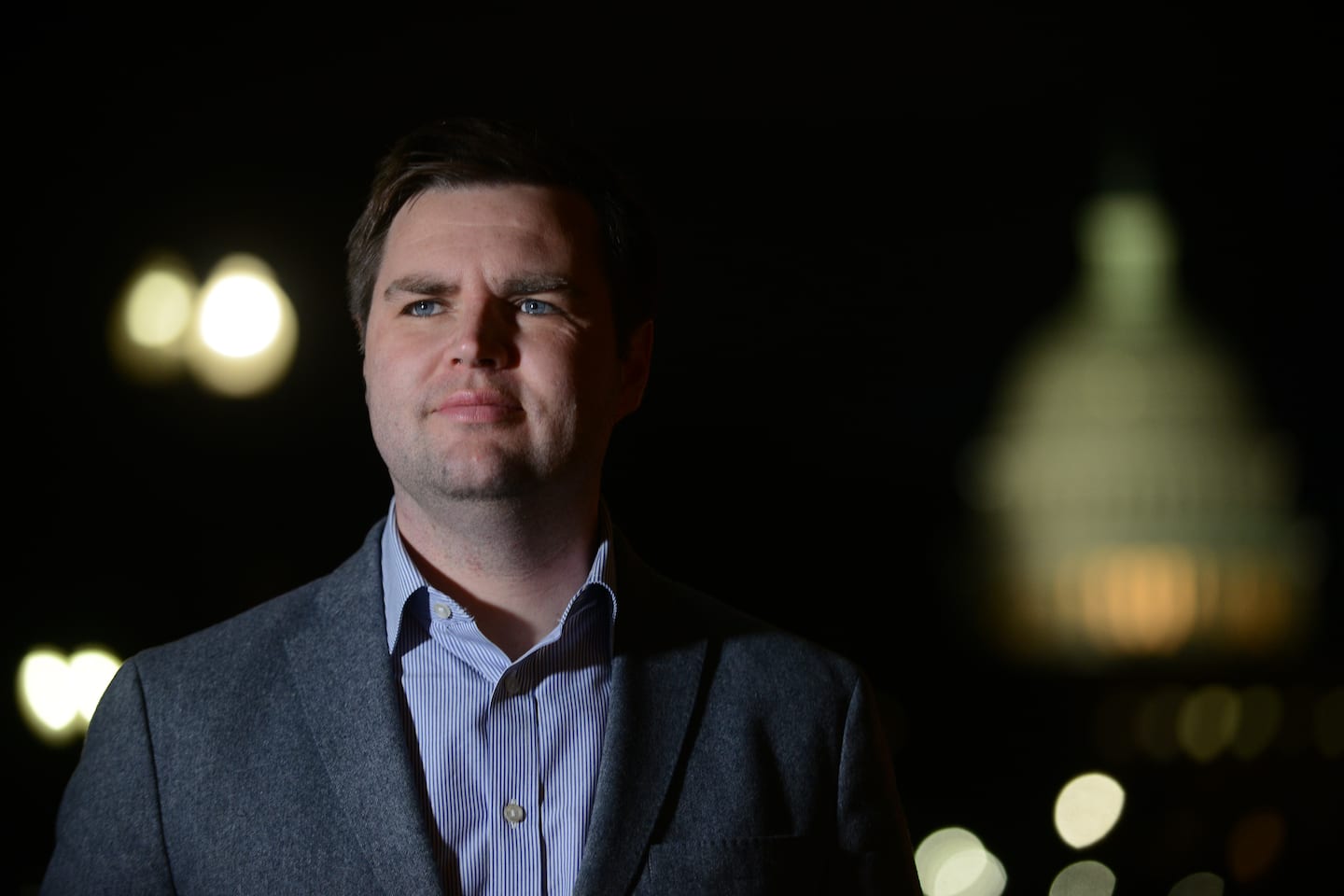Run for office, J.D. Vance

But Vance could be just the person to break the mold. His heartbreaking autobiography tells the story of his Appalachian-descended family. The Middletown, Ohio, community in which they lived spiraled downward under the pressures of globalization and community decline. His story became the go-to source for many to explain the burgeoning Trump phenomenon in 2016. Vance’s story, therefore, is the story of the prototypical Trump backer: White, working-class and desperate for a restoration of the decent, moderately prosperous communities they once knew.
He has since built on this initial foray to become a notable exponent of thoughtful populism. His 2019 talk at the National Conservatism conference, entitled “Getting Beyond Libertarianism,” was a masterful critique of the economic and moral depths to which unbridled free-market fundamentalism leads. He created a venture capitalist fund, Rise of the Rest, to fund entrepreneurs in heartland communities such as Middletown. He is also the co-founder of another venture fund, the Cincinnati-based Narya, which targets “exceptional teams tackling scientifically complicated business challenges.”
That firm’s name provides a telling window into Vance’s worldview. Narya is the name of one of the three rings made for elves in J.R.R. Tolkien’s famous “Lord of the Rings” trilogy. It is the “ring of fire” whose power is to give people the ability to “resist tyranny, domination and despair.” It is worn by Gandalf, the wizard whose analytical and persuasive powers fuel the resistance of the free people of Middle Earth against the evil Sauron. Vance clearly wants to give Americans hope that the future will be one that works for them, not for elites dwelling in distant realms.
Vance seeks a country with the sort of decent-paying jobs for average people that were once plentiful. To that end, he largely rejects supply-side economic orthodoxy that believes tax cuts for holders of capital — that is, the rich and large corporations — can produce those types of jobs. Instead, he advocates a “pro-family, pro-worker, pro-American nation” conservatism that takes the non-libertarian strands of conservative thought seriously.
That is exactly what a serious conservative-populist coalition needs. Those who merely rail against socialism and cancel culture have no answers for the real challenges middle America faces. Those who pledge fealty to former president Donald Trump no matter what he stands for at the particular moment have no commitment to the well-being of the people whose votes they seek. These faux populists are all bark and no bite. They can rile up an angry crowd, but they are incapable of building something that will address their anger or meet their challenges.
Ohio is the perfect place to nurture the thoughtful conservative populism Vance backs. Once a swing state, it is now firmly Republican because of White working-class voters that Vance wrote about shifting rightward. Fully 53 percent of all Ohio voters in 2020 were Whites without college degrees, a number that is surely much higher in Republican primaries. Many of these voters have personally experienced the community decline Vance wrote about, and those who have not are well aware of nearby towns that have. With enough money, Vance will be able to make his voice heard, and he’ll be selling a message — culturally to the right, economically to the center — that will inspire and resonate with voters at large.
He won’t have an easy time of it. Two big-name competitors, former state treasurer Josh Mandel and former Ohio GOP chair Jane Timken, have already declared their candidacies. Both pledge fealty to Trump and will be quick to attack Vance for his 2016-era doubts about the former president, although Trump’s performance in office led Vance to back him for reelection. Each should have enough money to make their case and have stronger roots in the GOP establishment.
Multicandidate primaries are funny things, however. Ohio has no runoff, so the winner only needs a plurality of the vote. Sometimes that means underdogs — such as then-state senator Barack Obama in Illinois — can beat better-funded rivals. That’s the path Vance could replicate should he decide to run.
Sometimes, Mr. Smith really does go to Washington. Here’s hoping that Mr. Vance will get into the race and win.
Read more:






